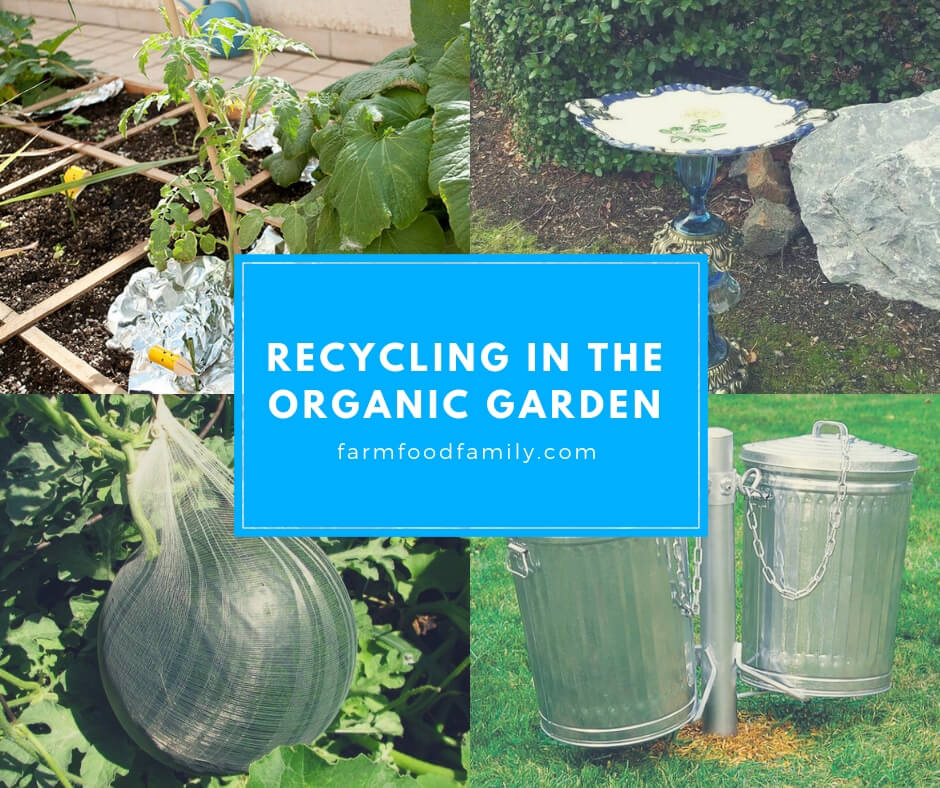Recycle your household waste into useful items for the organic garden.
Organic gardeners spend a lot of time and ingenuity thinking of new items to add to the compost bin. However, even if that wicker chair did eventually break down into something resembling organic matter, we must concede that many of our discards weren’t meant to become humus.
One of the tenets of organic gardening is, “With the least impact on the earth.” In this spirit, there are many other ways we can recycle our household goods into our organic gardens.
Aluminum Foil

It’s difficult to imagine how this gaudy, shiny material can find a home in the organic garden. However, the reflective nature of aluminum foil is exactly what makes it useful to plants.
Gardeners can use aluminum foil as mulch to increase the light around plants. If you’re starting seeds in a windowsill, place foil around the seed trays to raise the light levels for sturdy seedlings.
Curtains & Linens

Find a second home for threadbare sheets and ripped curtains in the garden. Threadbare linens can serve as shade cloth to keep lettuce from bolting early when the intensity of the sun’s rays increase.
Drape heavy blankets around emerging perennials when an unexpected frost threatens to nip them back. Use sheer curtains as floating row covers to block chewing insects from your vegetables.
Dishes

Depending on their size and aesthetic appeal, dishes have several potential uses in the organic garden. If you have a shallow bowl with a chip in it, you can use it as a slug trap. Fill the dish with stale beer and change it daily.
A large dish, such as a shallow ceramic baking dish, makes an unusual birdbath to attract bug-hungry avian friends to your garden. A plate that shattered when you dropped it on the floor is on its way to becoming fodder for a mosaic pot.
Garbage Cans

Leaky garbage cans make good compost bins. Poke extra holes in the cans for drainage, and all the better if the cans have a sealed lid: roll the cans on their sides to mix the compost weekly.
If a plastic garbage can is intact, but harbors an odor that you can’t get rid of, make it into a rain barrel by adding a spigot at the bottom and some screening to the top.
Pantyhose

Cut strips of worn out pantyhose to fashion plant ties that won’t cut into the stems. If you practice space saving gardening techniques by growing vegetables on trellises, you can use larger pieces of pantyhose to cradle heavy produce, like cantaloupes or squash, so they don’t pull free from their stems.
When applying powdered organic insecticides, like BT for caterpillars, you can use the foot end of the pantyhose as a shaker.
Plastic Containers
In many communities, recycling programs limit the types of plastic they’ll take to #1 and #2 plastics. This leaves many containers that would otherwise go into the landfill.
Use yogurt containers and margarine tubs for starting seeds or propagating shrubs from softwood cuttings. Fill the bottoms of giant pottery pieces with sealed plastic jugs or bottles to save on potting soil.


